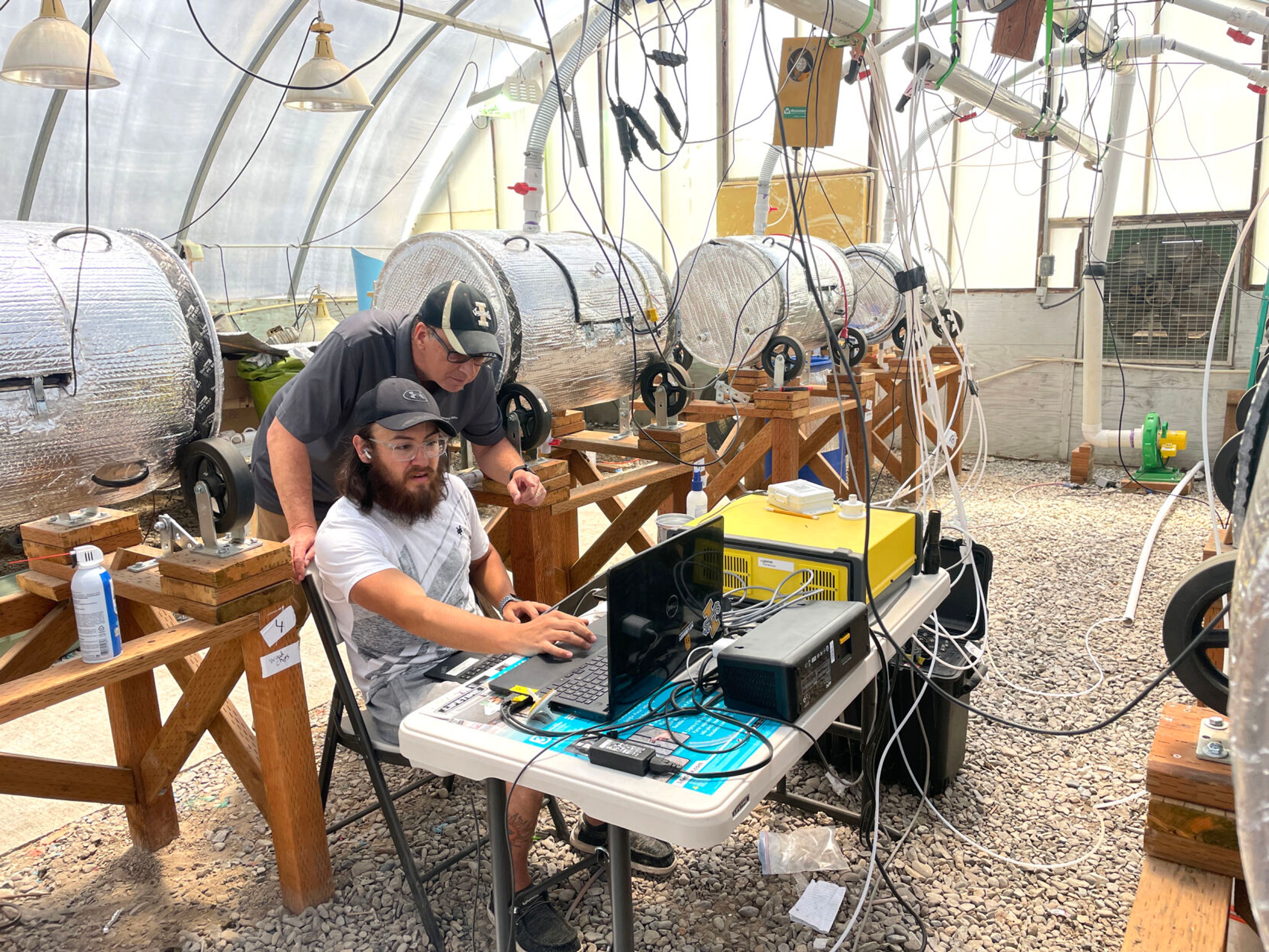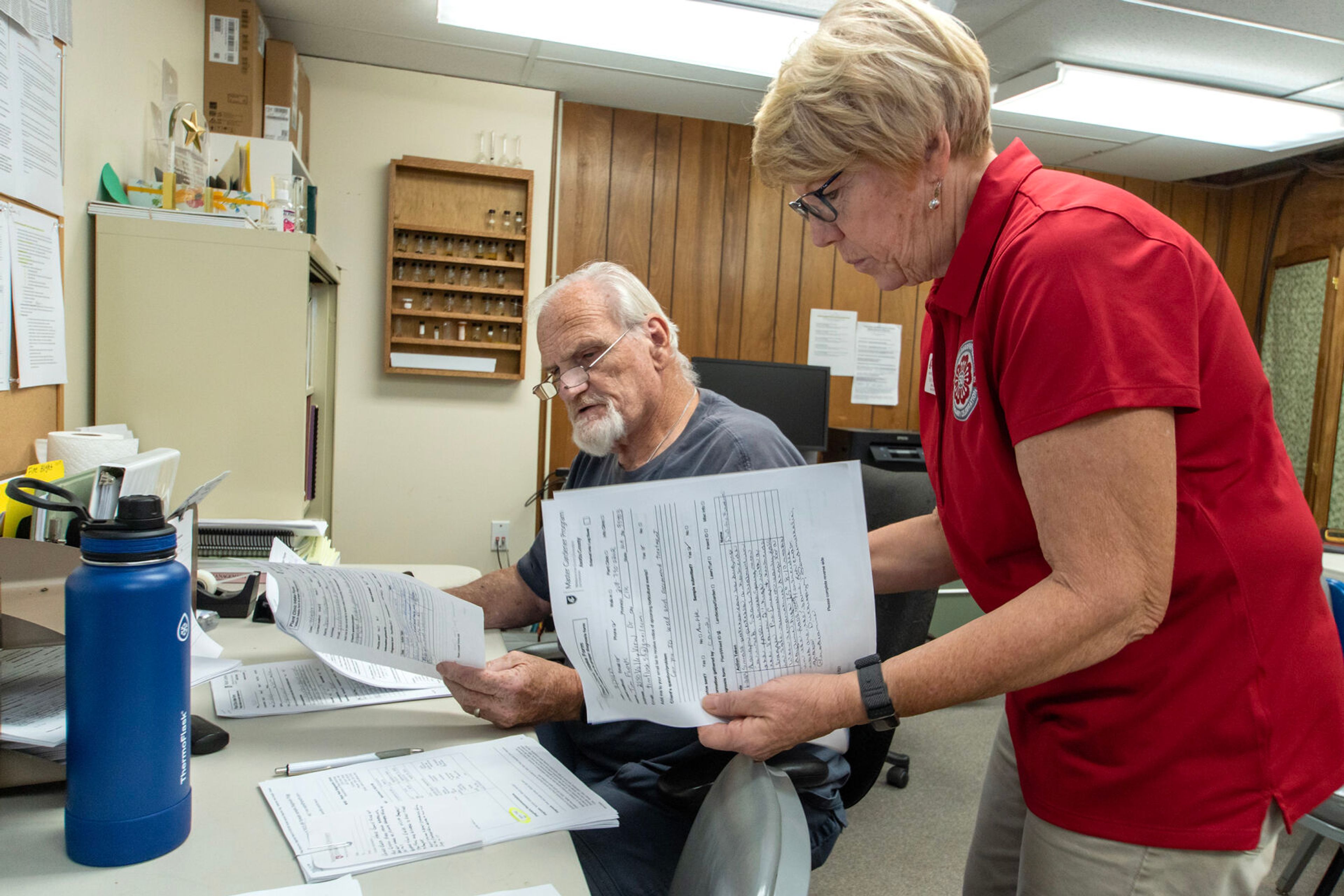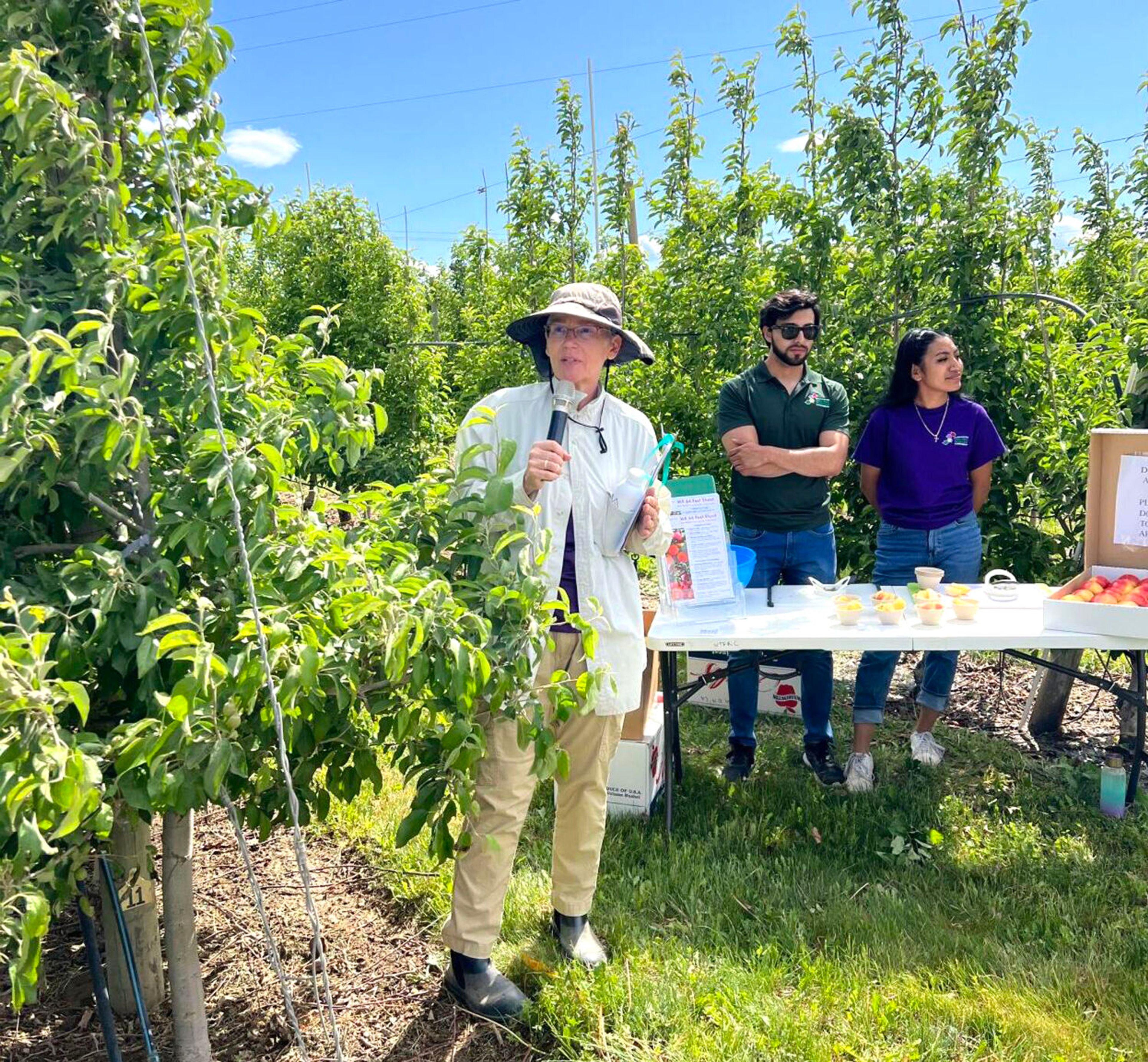He turns grad students into experts
AG Fall '09: Retired WSU prof Jerry Reeves receives national honor for turning his charges on to problem-solving
RURAL COLFAX - A birth control vaccine that stops reproduction in male and female mammals is being tested in Brazil on cattle that are normally castrated at the age of 2 in an operation that's difficult for the animal and surgeon.
The same vaccine may eventually help control the number of elephants in a national park in South Africa. The park could support 6,000 elephants in 1997 and had 7,000. A decade later the population had doubled.
The time-consuming work that got the vaccine to the testing phase wouldn't have been possible without the work of graduate students, said Jerry Reeves, a retired Washington State University professor of animal sciences. Reeves recently won the L.E. Casida Award from the American Society of Animal Sciences for excellent graduate student training in endocrinology and reproductive sciences.
Reeves tried to get his graduate students to immerse themselves in the work they were doing for him, he said. "I don't believe I ever took a graduate student without grant money because they'd get hungry and they'd start working at Safeway or McDonald's."
He had to make it interesting, give them opportunities to learn cutting-edge technologies and provide them the credit for the work they did, Reeves said. "All of our papers and manuscripts, the lead authors were always the students."
Reeves would guide the experiments of graduate students who were new to his team, but the more involved they became, the more freedom he gave for them to figure out what the next steps were. "As time goes on, they're consumed and they understand every aspect and they're thinking about how to make the next step work," he said.
The approach benefited the students as much as it did him, he said, with almost all of them having excelled in their careers.
The most famous is probably Janine Brown, who works for the Smithsonian Zoological Park and has appeared on specialty cable channels being interviewed about elephants.
One is a leading researcher of coral reefs because hormones, similar to those that govern reproduction in mammals, are also at play in the ocean organism. Others work at the Food and Drug Administration.
It's only been in retirement that Reeves has gained new perspective on why what he did worked. The book "Outliers, the Story of Success" by Malcolm Gladwell talks about how a person needs 10,000 hours of practice to do anything really well, whether it's playing basketball or practicing podiatry.
In junior high, for example, Bill Gates had access to a main frame computer paid for through a PTA fundraiser his mother helped organize. As a high school student, Gates snuck out of his house and went to computer labs at the nearby University of Washington where anyone could use its main frames between midnight and 6 a.m. His senior research project was helping the Bonneville Power Administration with its computer system.
Aside from structuring the research, Reeves had to keep receiving grants to pay for the work. Doing so may have been easier for him than others. Early in his career his mentor won the Nobel Prize for isolating the brain hormone that releases the two hormones that control reproduction in all male and female mammals. That discovery led to others such as new treatments for prostate and cervical cancer.
Having been involved in Nobel Prize research gave the work he wanted to pursue more credibility, Reeves said. "I was on the inside."
---
Williams may be contacted at ewilliam@lmtribune.com or (208) 848-2261.










